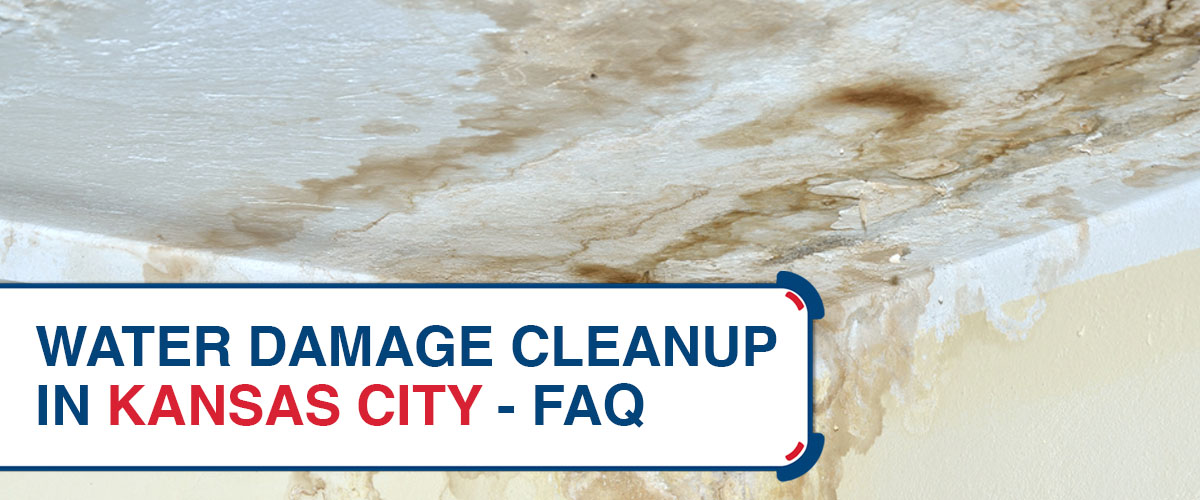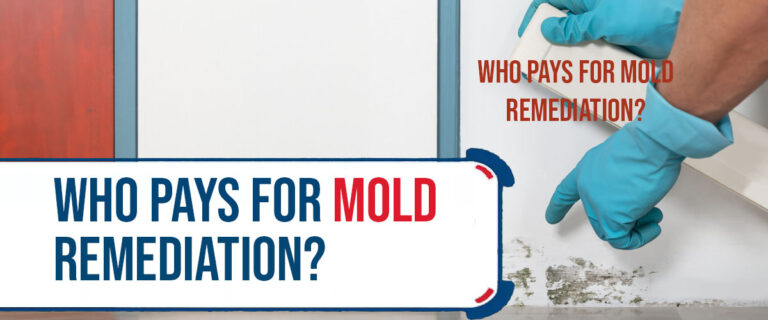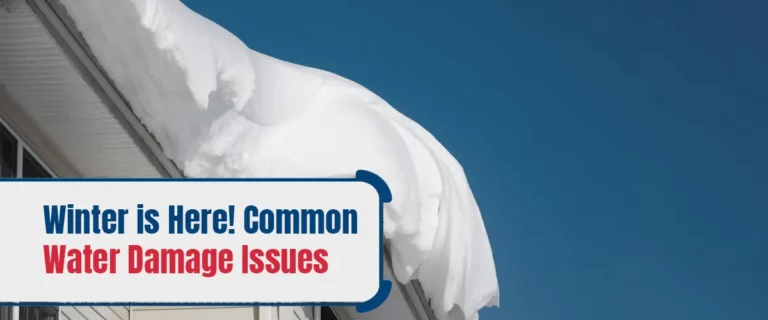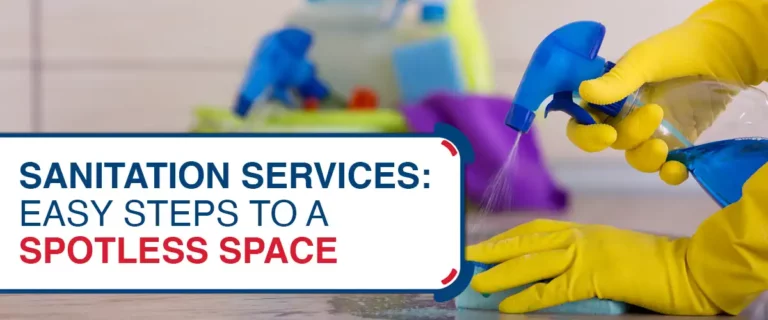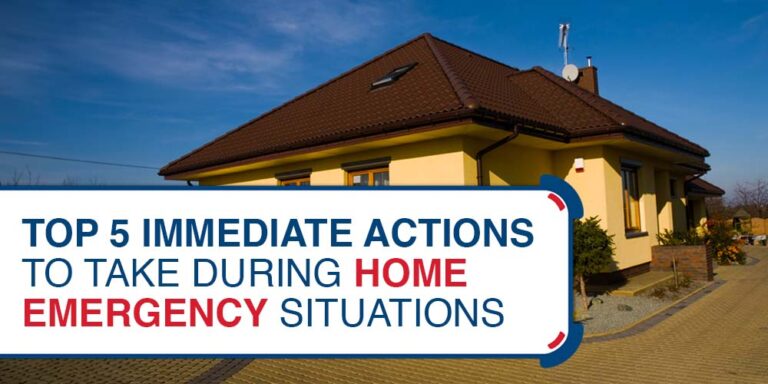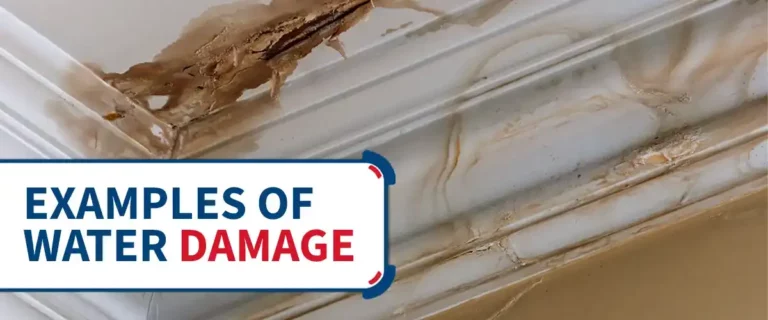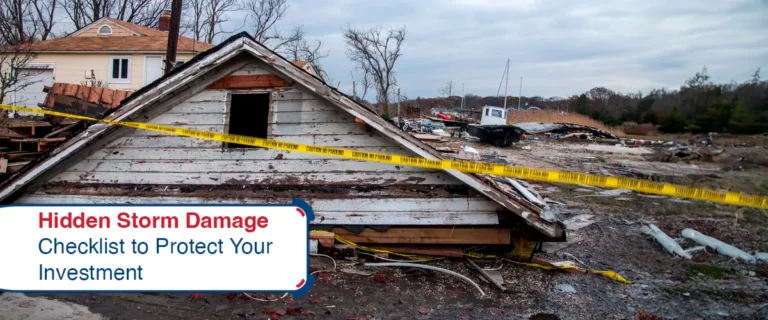Water Damage Cleanup in Kansas City – FAQ
It’s not a walk in the park to deal with water damage. Not to mention the cost that comes with it if it is not mitigated immediately. Have you ever been ankle-deep in unexpected problems after a leak or flood? You are not alone. This common and unfortunate event can inevitably happen to homeowners and business owners. However, fear not because we’re here to piece together the answers and strategies for effective water damage cleanup in the heart of Kansas City.
Whether caused by burst pipes, leaking roofs, or appliance malfunctions, water damage––if not addressed promptly–– can lead to:
- structural problems
- mold growth,
- and other health hazards
Furthermore, this guide will answer the frequently asked questions about water damage cleanup in Kansas City to help you understand the importance of addressing this issue and the steps involved in restoring your property. So, let’s dive in and learn everything you need to know!
Here are some frequently asked questions about water damage cleanup in Kansas City.
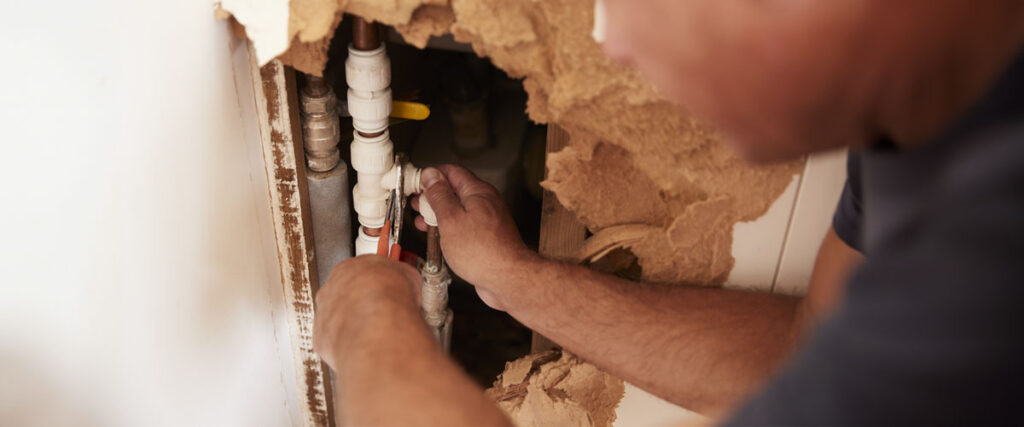
1. What are the common causes of water damage?
A variety of sources can contribute to residential water damage in Kansas City, and common causes include the following:
- Burst pipes
- Plumbing leaks
- Flooded basements
- Roof leaks
- Appliance malfunctions
- Natural disasters such as heavy rain or floods
Identifying the source of water damage is also essential for effectively addressing the issue and preventing future incidents.
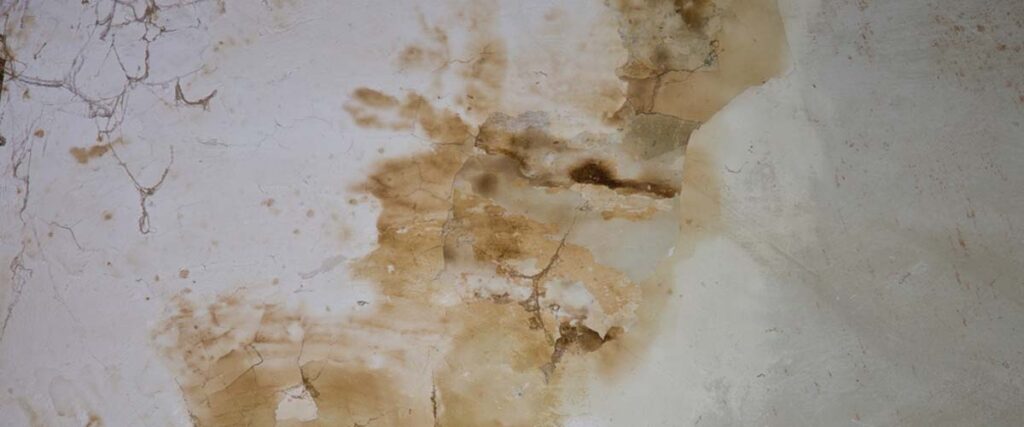
2. What are the signs of water damage in my home?
Several signs may indicate water damage in your home, such as:
- Visible water stains on walls, ceilings, or floors
- A musty or mildew smell
- Damp carpets or upholstery
- Bubbling or peeling paint
- Warped or buckling wood floors
- Cracks in drywall or plaster
In addition, upon observing these signs, immediate contact with a professional water damage restoration company is crucial.
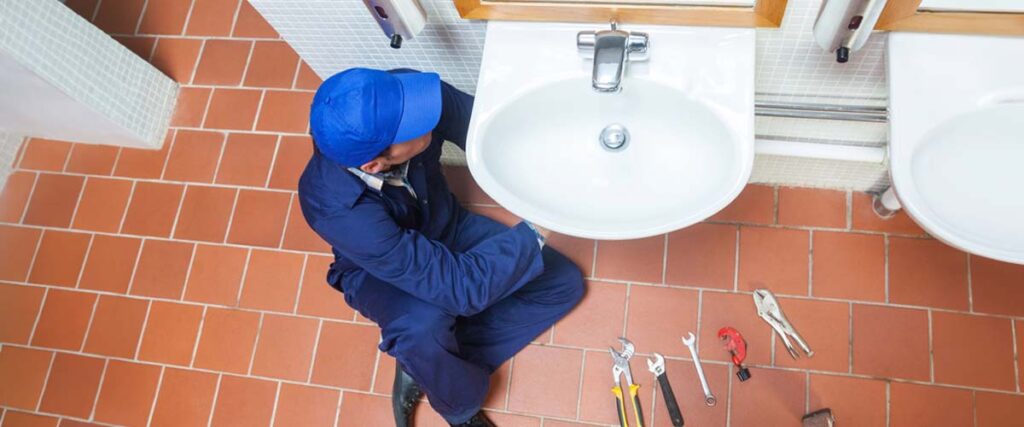
3. What can I do to prevent water damage in my home?
Preventing water damage in your home is possible through various measures, such as:
- Regularly inspect your plumbing fixtures for leaks
- Install water alarms in areas that are prone to water damage, such as basements and laundry rooms
- Maintain your gutters and downspouts to prevent rainwater from overflowing
- Elevate appliances such as water heaters and washing machines on pedestals
- Turn off the water supply to your home if you are going to be away for an extended period
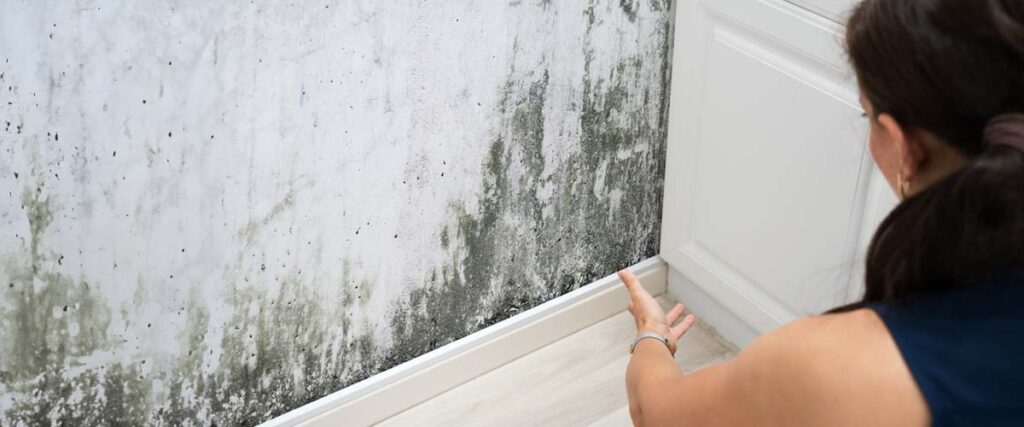
4. What proactive steps should you take to prevent mold growth in a water-damaged home?
Mold spores are always in the air but only grow in warm, moist environments. To prevent mold growth in your water-damaged home, you need to take the following measures:
- Promptly eliminate all damp materials from the impacted region.
- Effectively aerate the space by opening windows and doors.
- Utilize fans and dehumidifiers to extract moisture from the atmosphere.
- Raise the humidity level in the affected area, ideally between 30% and 50%.
- Seek assistance from a reputable mold remediation company when you notice any visible mold growth.

5. How can I find a reputable water damage restoration company?
There are a few things you can do to find a reputable water damage restoration company, such as:
- Seek suggestions from friends, family, or neighbors for reliable recommendations.
- Check online reviews
- Make sure the company is licensed and insured
- Get quotes from several companies before making a decision

6. Does insurance cover water damage in Kansas City?
The extent of coverage for water damage is contingent upon your insurance policy. It’s also important to review your policy and understand what types of water damage incidents are covered. Moreover, some policies may cover burst pipes or sudden water damage, while others may exclude specific causes or require additional coverage.
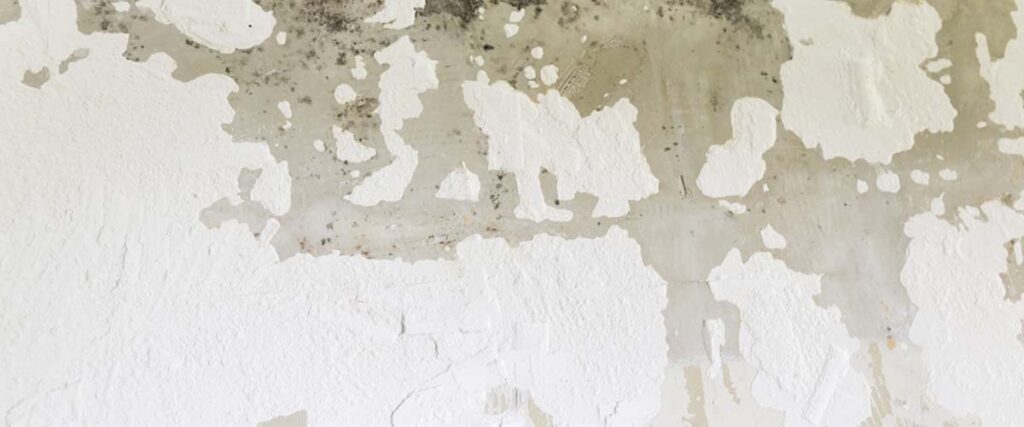
7. What steps should I take for water damage cleanup?
Taking swift action is crucial when faced with water damage. Take the following steps to secure the situation:
- Cut off the water source to avoid additional damage.
- Eliminate any stagnant water and dry the impacted areas using dehumidifiers and fans.
- Meticulously cleanse and disinfect all surfaces to deter mold growth.
- Repair or replace damaged materials and address any underlying issues contributing to the water damage.
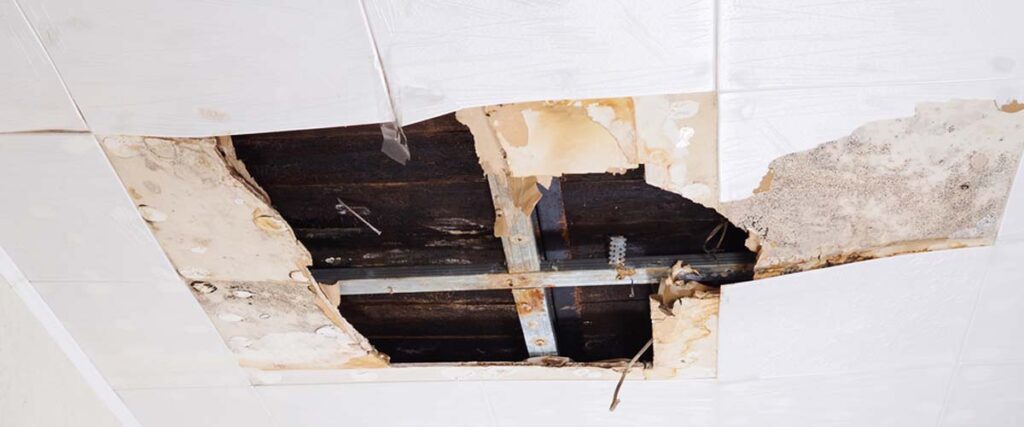
8. How long does water damage cleanup take in Kansas City?
The duration of water cleanup services in Kansas City depends on the extent of the damage, the size of the affected area , and the drying methods employed. It can take a few days to a couple of weeks for a complete restoration, such as:
- Drying
- Cleaning
- Repairs

9. What are the risks associated with leaving water damage untreated?
Leaving water damage untreated can lead to several risks, such as:
- Mold growth
- Weakened structure
- Rotting wood
- Electrical hazards
- Health issues caused by mold spores or bacteria
Moreover, prompt cleanup prevents these risks and ensures a safe living environment.
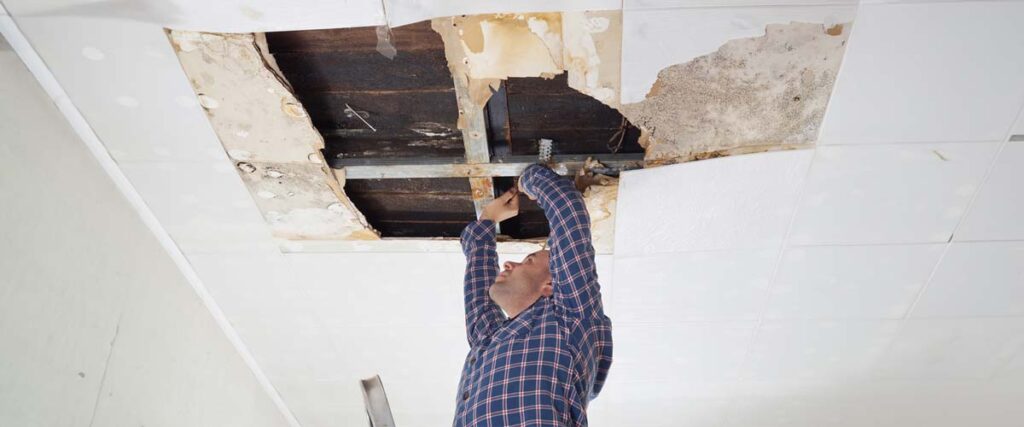
10. How do professionals assess the extent of water damage?
Professionals use various methods to assess water damage. Additionally, these tools help professionals determine the affected areas, the extent of damage, and the appropriate restoration steps, including:
- Visual inspections
- Moisture meters
- Infrared cameras
- Humidity testing

Wave Goodbye to Water Damage!
To summarize, water damage in Kansas City can be a daunting problem, but you can effectively address it with the proper knowledge and action. Also, remember to act quickly, understand your insurance coverage, and make an informed decision regarding water damage cleanup.
Whether you tackle it yourself or hire professionals, the most important thing is to take action promptly. By doing so, you not only minimize the extent of damage but also protect yourself and your property from potential risks and long-term complications.
References:
- Mold Course Chapter 2: | US EPA. (2023, June 27). US EPA. Retrieved from https://www.epa.gov/mold/mold-course-chapter-2
- Owsiany, R. (2023, July 14). 3 Ways to Clean Up Water Damage – wikiHow. Retrieved from https://www.wikihow.com/Clean-Up-Water-Damage
- Zito, B. (2023, March 10). 8 Steps To Take After Water Damage In Your House. Forbes Home. Retrieved from https://www.forbes.com/home-improvement/home-emergencies/steps-after-water-damage/


